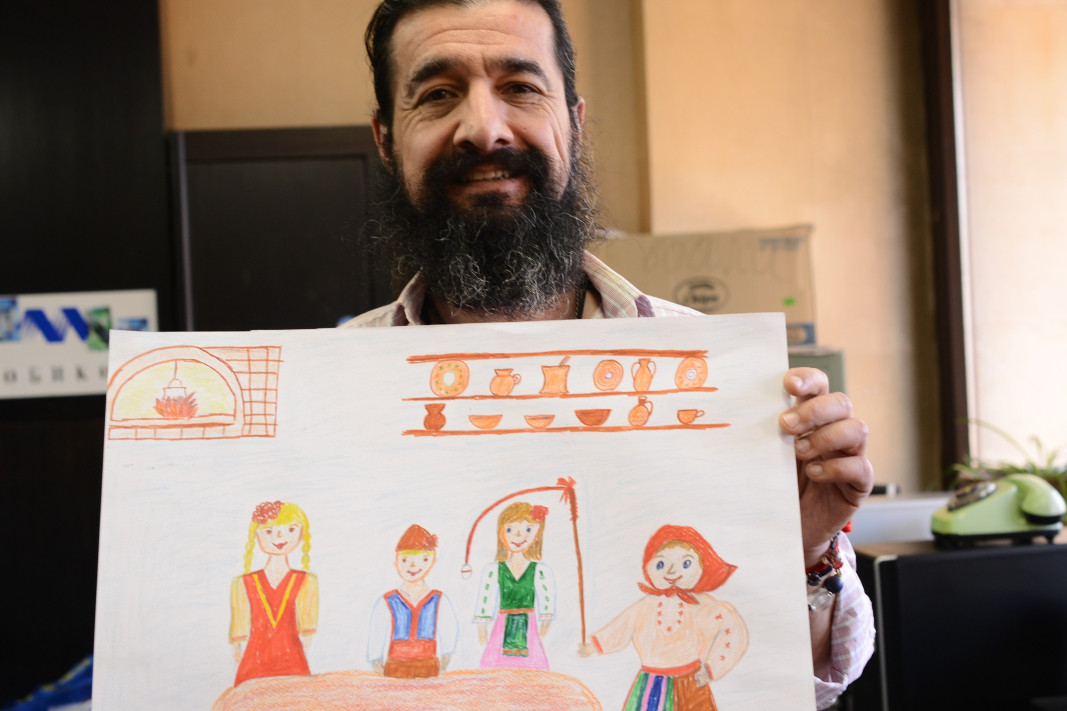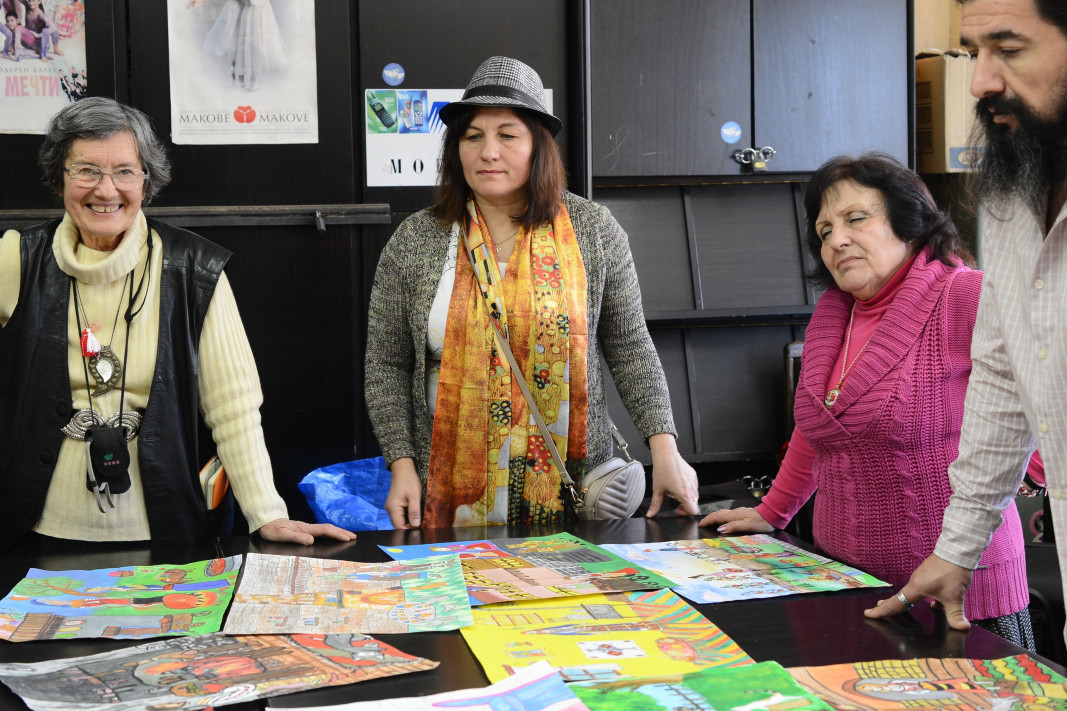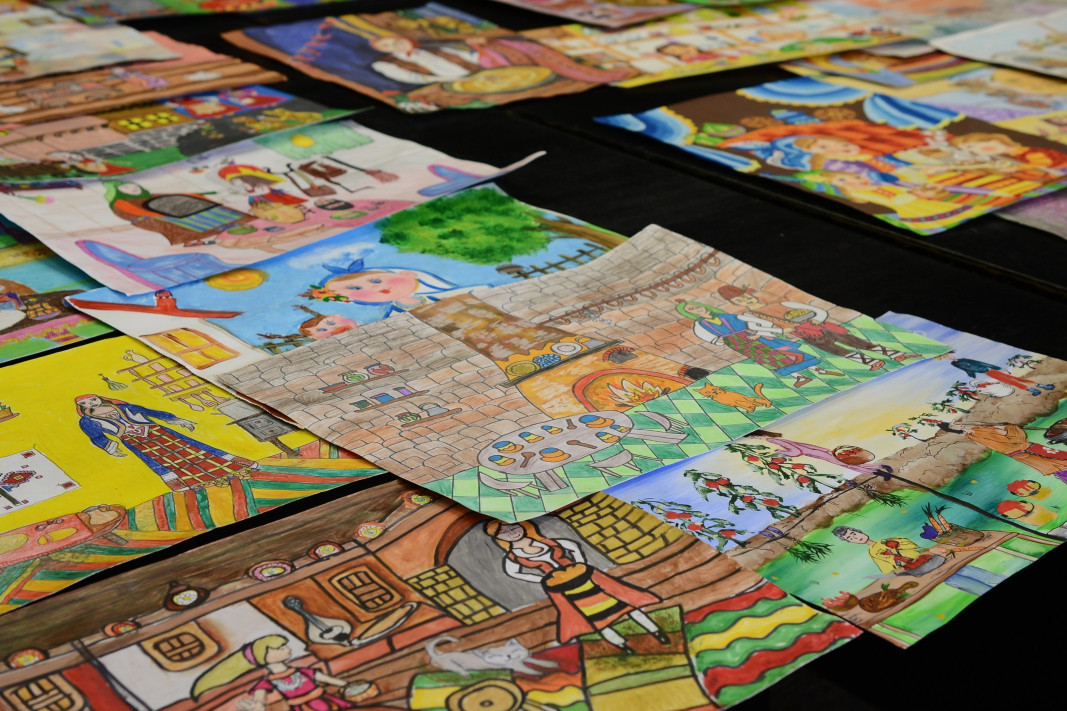As Easter approaches fast, the traditional contest for children’s drawings “Granny’s recipes” is once again highlighting gastronomical gems discovered by children from all over Bulgaria and sent to the contest organizer Chef Penyo Ivanov and the foundation “Guardian of Tradition-the Guardians”.

The idea of adding a gastronomy competition to the children’s drawings contest came naturally, when chef Penyo Ivanov received so many different “granny” recipes that lend an authentic atmosphere to any holiday season. The children’s contest has been taking place for 15 years, with experienced pedagogues, lecturers at the Academy of Arts, as well as journalists taking part in this year’s edition.

And because the underlying idea of the “Granny’s recipes” contest for children’s drawings is the idea of preserving collective memory and keeping Bulgarian tradition alive, as Easter approaches we take a look at bread, which reigns supreme at this time of year – a special kind of bread, the sweet, fragrant Easter variety known as kozunak.
“Though it may be very different from the salty flatbread or the pogacha, kozunak is a species of ritual bread,” says Penyo Ivanov and adds:
“Everyone should try baking bread at least once in their lives. It is a ritual. I learnt how to do it in the early 1990s from a chef who is very special to me. Bread was once made in a special kind of kneading-trough, and was left overnight to help fermentation which is a slow process. Fermentation is actually what makes a kozunak delicious.”

Out of all recipes Chef Penyo Ivanov received as entries for the “Granny’s recipes” competition, the ones he values most are the old, traditional Bulgarian recipes. Even though he is familiar with much of Bulgaria’s cuisine, he says there still pop up some recipes that can surprise even an experienced cook. The best part of what has come down to us from the old “masters” is that a minimum amount of resources goes into the making of amazingly tasty and easy-to-make dishes.

“Because food used to be simple in terms of ingredients and preparation technique. I admire older people who were never rich but who were able to combine few products in different ways to obtain a rich variety," Penyo Ivanov says. "It was really amusing to see, among the recipes coming in this year, one that was called “No-beating kozunak”. Someone had obviously had enough of “beating” the dough on the table to make the kozunak rise. So, they came up with a “no-beating” technique of their own. There is a theory that pounding the dough on the table affects the grain starch, the quality and the taste of the pastry. Whether it is true or not is a big question because science has never proved any such benefits. The people of Bulgaria are wise, they have inherited the traditions of many tribes and nations that have passed through our land. In this sense, even if something has not been proven, we can still rely on the way our ancestors used to knead and bake bread.”
Translated from the Bulgarian and posted by Milena Daynova
Photos: Facebook/ Granny's recipes
The first Dalmatian Pelican of this season hatched a few days ago in the protected area Kalimok - Brushlen near the Danube town of Tutrakan, reports the Bulgarian Society for the Protection of Birds "BirdLife Bulgaria". The parents are taking active..
More than 4,000 participants from 52 masquerade groups from all over the country will take part in the Jamala National Masquerade Festival in Kyustendil on 15 and 16 February. A children's folklore procession will start from Velbazhd Square at 10.30 a.m...
With more 40 thousand archaeological sites and artifacts, Bulgaria is a true open-air museum. In terms of the number of finds, this country ranks third in the world after Italy and Greece. From the Neolithic, eight millennia ago, to..
On February 16, Radio Bulgaria celebrates its 89th anniversary . Throughout these years, our multilingual media has been not only a channel of information,..
At various times in its existence, the BNR's Directorate of Foreign Language Broadcasts, now known as Radio Bulgaria, the multimedia multilingual platform..
February 16, 2025 marks the 127th anniversary of the first bulletin of the Bulgarian Telegraph Agency, signed by its first director Oscar Iskander. The..

+359 2 9336 661
